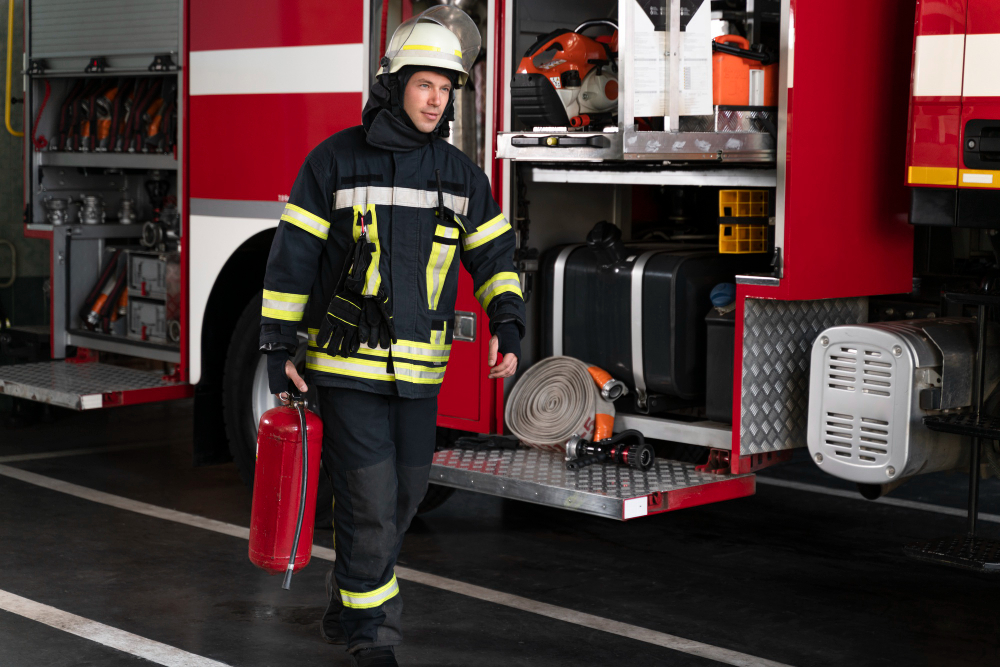When faced with a sudden fire emergency, the ability to effectively employ a fire extinguisher can be the decisive factor between containing a small blaze and experiencing a catastrophic event. However, the lack of proper knowledge and training regarding the correct usage of fire extinguishers can lead to dire consequences, putting lives, property, and entire communities at risk. Understanding the gravity of this issue is crucial for fostering a culture of fire safety preparedness and ensuring that individuals are equipped with the necessary skills to mitigate the destructive potential of fires.
A Lack of Preparedness: Unveiling the Risks
In moments of crisis, the inability to utilize a fire extinguisher correctly can exacerbate the spread of flames, causing irreparable damage to both physical structures and human life. The failure to understand the appropriate type of fire extinguisher for specific classes of fires, the ignorance of the proper operating procedure, or the inability to assess the scope of the fire can all contribute to ineffective fire suppression efforts. Moreover, panic and a lack of familiarity with the equipment can further impede an individual's ability to take decisive action, leading to a rapid escalation of the fire and potentially life-threatening situations.
Human Safety at Stake: The Implications of Inadequate Response
In scenarios where an individual is unable to utilize a fire extinguisher effectively, the consequences can be devastating. Beyond the immediate physical risks posed by the spreading fire, the emotional and psychological impact on the individuals involved can be profound. Feelings of helplessness, fear, and remorse may linger long after the fire has been extinguished, leaving a lasting imprint on the affected individuals and their communities. Additionally, the financial repercussions resulting from extensive property damage and the potential disruption of businesses and livelihoods can be far-reaching, further underscoring the importance of equipping individuals with the necessary knowledge and skills to respond effectively to fire emergencies.
Addressing the Knowledge Gap: Empowering Communities Through Education
To mitigate the impact of ineffective fire extinguisher use, it is imperative to prioritize fire safety education and training at both the individual and community levels. By offering comprehensive training programs that focus on fire prevention, emergency response protocols, and the proper handling of fire extinguishers, communities can foster a culture of preparedness and resilience. Empowering individuals with the knowledge and confidence to act swiftly and decisively during a fire emergency is essential for minimizing the potential destruction and ensuring the safety and well-being of all community members.
Promoting a Culture of Proactive Fire Safety Measures
Beyond individual training, the implementation of proactive fire safety measures within residential, commercial, and public spaces is critical in preventing fire-related incidents. Regular inspections and maintenance of fire extinguishers, the installation of clear and accessible signage, and the development of comprehensive evacuation plans are all integral components of an effective fire safety strategy. Additionally, fostering open communication and collaboration between community members, local authorities, and fire safety professionals can further strengthen the resilience of communities and promote a collective commitment to fire safety preparedness.
A Collective Responsibility for Fire Safety Preparedness
In the face of potential fire emergencies, the impact of not being able to effectively use a fire extinguisher can be far-reaching and devastating. By acknowledging the critical role that fire safety education and preparedness play in safeguarding lives and property, communities can take proactive measures to ensure that individuals are equipped with the necessary skills and knowledge to respond effectively to fire incidents. Through a collective commitment to fire safety awareness and education, communities can cultivate a culture of preparedness and resilience, thereby minimizing the potential consequences of ineffective fire extinguisher use and creating safer environments for all.

